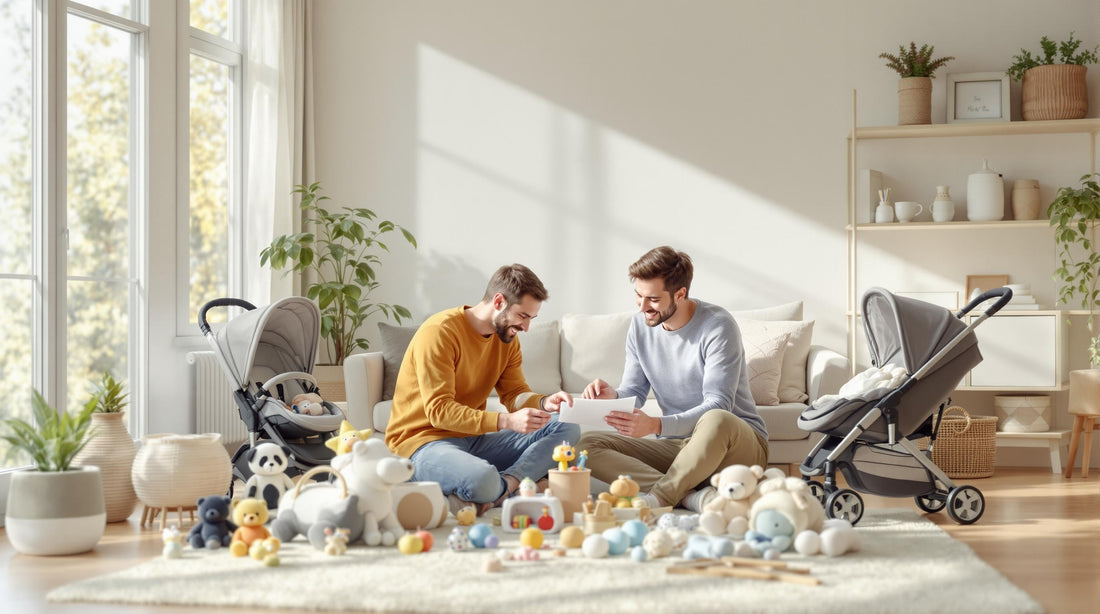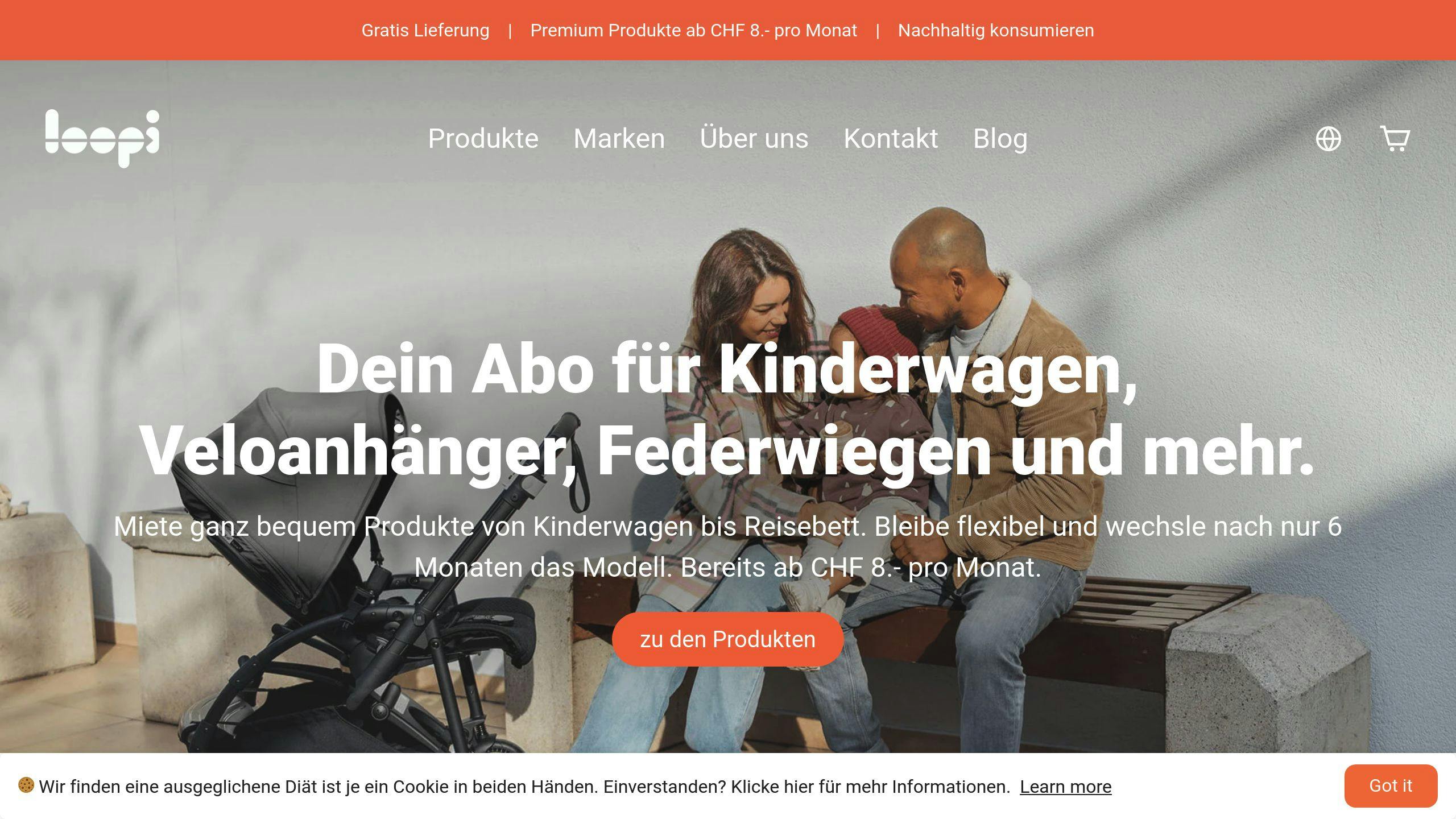
Renting children's equipment: Advantages and disadvantages at a glance
Share
Should you rent or buy baby items? If you want to save money, free up space at home and help the environment, renting might be the better choice. Companies like loopi offer flexible rental models for strollers, high chairs and more. But not everything is ideal - for siblings or hygiene items like mattresses, buying often makes more sense.
Advantages of renting:
- Costs: Low initial costs and flexible monthly payments.
- Flexibility: Products can be exchanged and adapted to the child’s needs.
- Sustainability: Shared use reduces resource consumption and CO2 emissions.
- Hygiene & Safety: Professional cleaning and regular checks.
Disadvantages of renting:
- Costs: More expensive in the long run if you have more children.
- Flexibility: minimum rental period and limited model selection.
- Sustainability: Transport and cleaning can harm the environment.
- Hygiene & Safety: Signs of wear and use by other families.
Conclusion: Renting is worthwhile for short periods of use, little storage space and testing premium products. Buying is better for long-term use or when hygiene is the top priority.
1. loopi

Prices and rental conditions
At loopi, parents can rent baby equipment for monthly fees that, depending on the product, range from CHF 8 for smaller accessories to CHF 99 for high-quality items such as smart baby beds. The minimum rental period is 6 months, after which the rental period can be flexibly extended. Another advantage: products can be exchanged during the rental period to meet the child's changing needs.
environmental aspects
loopi places great emphasis on an environmentally friendly approach. Professional cleaning and maintenance extends the lifespan of baby equipment. According to the company, extending the service life by one year can reduce CO2 emissions by up to 50%. This shows how renting baby products not only makes everyday life easier for parents, but also benefits the environment.
Available products
The range includes a wide variety of items such as strollers, bike trailers, travel cots, baby beds, car seats and accessories such as mosquito nets. Each product is thoroughly cleaned, safety tested and is available in a variety of designs.
These flexible rental options offer many practical benefits, but also raise questions about the potential challenges they might present.
Baby essentials - what did we REALLY need?
sbb-itb-2e34008
Advantages and disadvantages at a glance
Here are the key advantages and disadvantages to help parents make their decision:
| aspect | Advantages | Disadvantages |
|---|---|---|
| Cost | • Low initial costs and flexible payments • Savings of up to CHF 274 on strollers over 3 years [1] |
• Higher total costs for multiple children • Additional expenses for accessories possible |
| flexibility | • Adaptation to individual needs and possibility to test models • No additional storage space required |
• A minimum rental period is often required • Selection of models may be limited |
| sustainability | • Less resource consumption • Longer service life of products • Supports the reuse of materials |
• Transport and cleaning can pollute the environment |
| Hygiene & Safety | • Professional cleaning and maintenance • Regular security checks |
• Use by several families • Any signs of wear visible |
The rental costs are often cheaper than buying new products, especially for only children. When choosing a rental service, it is important to pay attention to clear rental conditions, thorough cleaning and the possibility of flexible exchange. The monthly costs are between CHF 25 and 59 [1] [2] depending on the product.
For some items, such as mattresses and car seats, it is recommended to buy new for hygiene and safety reasons [3] .
Renting baby equipment offers many benefits, but it doesn't necessarily suit every situation or need.
Key Takeaways
Rent or buy: which is better?
-
Renting is particularly suitable for:
- Families with one child who prefer low initial costs
- situations with limited storage space
- Trying out premium products before making a purchase decision
- Short-term or temporary needs
-
Buying makes sense for:
- Multiple use, e.g. for siblings
- products with high hygiene requirements (such as mattresses)
- Special requests regarding design or equipment
- Long-term use and planning
Practical tips: Compare providers such as loopi and Mama Poppins in terms of costs (basic rents between CHF 25-59 plus CHF 1-7 for extras) and services [1] [2] . Pay attention to possible additional fees and the scope of maintenance offers.
Renting is particularly suitable for products that are needed for a short period of time, such as strollers or high chairs. Flexible subscription models, such as those offered by loopi , allow you to adapt to changing requirements while conserving resources.
Whether you rent or buy ultimately depends on your family's individual needs and priorities.
